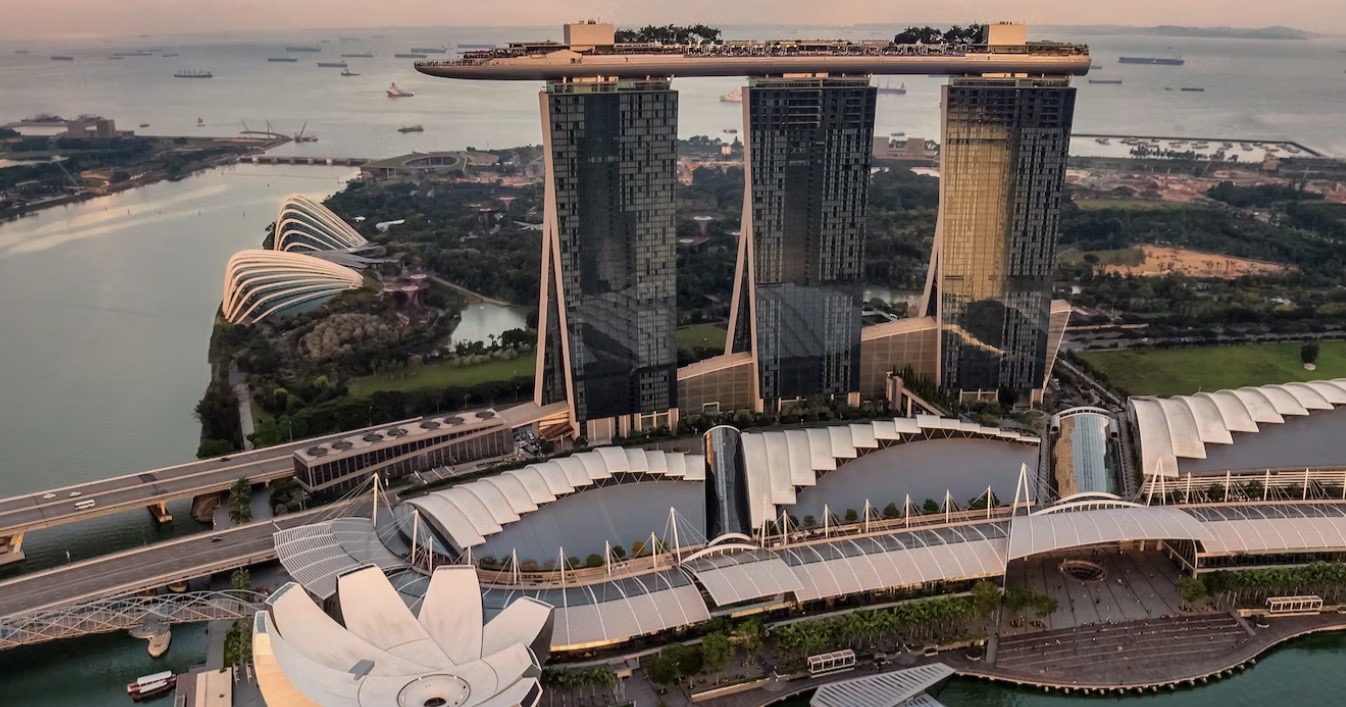Follow us on Telegram for the latest updates: https://t.me/mothershipsg
On Monday (Apr. 10), President Halimah Yacob gave an Address to Parliament and spoke about the increased risks Singapore currently faces as a small nation amidst an increasingly troubled external environment.
She highlighted the need for Singapore to adapt to a reshaped global order characterised by strategic geopolitical rivalry, and rising economic nationalism and protectionism.
In addition to building resilience, Singapore also has to foster a more sustainable way of life for the sake of future generations.
On Thursday (Apr. 13) some ministries have outlined plans to strengthen defence capabilities, secure Singapore's place in the world, strengthen relations with neighbours and international partners, and foster a more sustainable way of life.
Here is a summary of the key initiatives.
Ministry of Home Affairs (MHA)
MHA is committed to updating laws to better protect Singaporeans. Such examples include the introduction of new legislation to better protect the public from scams.
MHA aims to enhance Home Team's operational effectiveness through leveraging technology and by training and developing officers.
Lastly, MHA hopes to build a vigilant public and further tap on community partners and counter to counter the threats of terrorism, scams and drug abuse, and to better support the rehabilitation and reintegration of ex-offenders.
Ministry of Defence (MINDEF)
Mindef aims to transform the Singapore Armed Forces (SAF) for 2040 and beyond through the leveraging of technology to deter and defend against emerging and evolving threats.
Mindef is also working towards ensuring training safety by adopting an enterprise Safety Information System for safety education, and investing in research that will enhance safety.
The National Service system will be strengthened through reviewing the medical classification system, expanding Work-Learn Schemes for Full-Time National Servicemen, redesigning vocational roles, and expanding opportunities for Operationally Ready National Servicemen to apply their civilian expertise in operational contexts.
Mindef is also committed to strengthening multilateral cooperation to address common threats through platforms such as the Asean Defence Ministers' Meeting (ADMM) and the Shangri-La Dialogue.
Research and information sharing will be promoted amongst regional partners to tackle emerging cybersecurity and information threats through the launch of ADMM cybersecurity and Information Centre of Excellence.
Mindef also hopes to strengthen defence relations with our neighbours and expand cooperation with defence partners through high-level dialogue, military-to-military exchanges, and joint training.
Ministry of Foreign Affairs (MFA)
MFA hopes to engage Singaporeans on foreign policy principles so that they have a deeper understanding of Singapore's long-term national interests and vulnerabilities.
MFA will continue making constructive contributions to shape emerging rules and norms governing the global commons, including in climate change and sustainability, cyberspace and outer space.
The ministry will also work with partners around the world to advance shared interests and address common challenges.
Ministry of Sustainability and the Environment (MSE)
MSE hopes to strengthen food security through diversifying food import sources and ramping up local production capabilities and capacities.
Water security will also be strengthened through desalination and reusing water. MSE also hopes to safeguard public hygiene through continued vector control and risk surveillance efforts.
Examples of such efforts include Project Wolbachia.
MSE stated that will reinforce sustainability efforts and implement Singapore Green Plan initiatives to achieve net zero emissions by 2050.
Infrastructure will be enhanced to adapt to increased flood risks and rising temperatures.
The ministry will continue investing in new capabilities in areas such as urban heat mitigation, decarbonisation, agri-food production and costal protection.
Ministry of Communications and Information (MCI)
MCI aims to protect critical information infrastructure and systems for cyber threats and enable a safer cyberspace through the Cybersecurity Labelling Scheme and Cybersecurity Trust and Essentials Mark certification programmes.
MCI also hopes to design and implement codes of practice for social media services and application stores to protect users from harmful online content.
Ministry of Health (MOH)
MHA intends to set up the Communicable Diseases Agency to oversee disease preparedness, prevention and control, surveillance, risk assessment, and outbreak response.
MHA also hopes to review the Infectious Diseases Act to deal with a wider range of public health situations.
Ministry of Transport (MOT)
MOT hopes to invest in aviation and maritime infrastructure to secure Singapore's position as an aviation and maritime hub.
MOT also aims to strengthen capabilities and increase productivity in the aviation and maritime sectors through redesigning jobs, deepening skillsets, digitalisation and innovations.
In terms of sustainability, the ministry hopes to encourage the adoption of cleaner-energy vehicles, as well as expand rail networks to encourage Singaporeans to opt for public transport.
MOT states that they are committed to ensuring fiscal sustainability in public transport through the review of the fare adjustment formula and mechanism.
Lastly, MOT aims to work wth aviation and maritime industry partners to develop sustainability pathways, such as transitioning to more sustainable fuels and cleaner energy.
Ministry of National Development (MND)
MND aims to keep Singapore green, vibrant and inclusive by creating more space for growth and development by building new, liveable and sustainable towns.
The ministry is committed to intensifying and optimising land use with greater flexibility and optionality to enable nimble responses to changes in land use needs, as well as leveraging infrastructure and nature-based solutions to build up resilience against climate change.
Related stories
Top photo via Unsplash
If you like what you read, follow us on Facebook, Instagram, Twitter and Telegram to get the latest updates.
